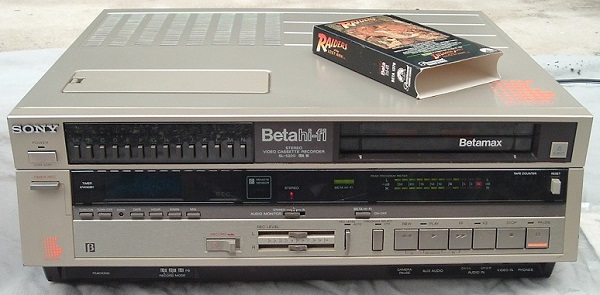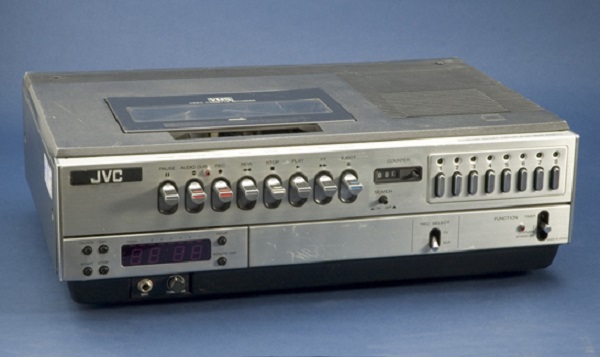Back in 1975, Sony introduced Betamax, an analogue video format meant to serve as an alternative viewing experience to JVC’s video home system (VHS).
Since that day, Sony has waged battle with JVC to capture a larger chunk of its audience. Unfortunately, the company never truly earned the success it thought the technology deserved, and so today, some 30 years later, Sony has decided to officially kill off the Betamax program.

The battle between the two companies was perhaps most intense in the 1980s, when there was a sudden proliferation of in-home entertainment availability courtesy of so many video rental stores being established.
Consumers were drawn to this new video technology for such conveniences as the ability to record, rewind, and play-back their content; JVC’s VHS format in particular, quickly became the clear favorite among consumers.

The company remained dominant well in to the 1990s, all the while Sony tried to catch up with its Betamax alternative. In fact, Sony continued producing Betamax recording equipment up until 2002, at which point consumers began to move on to disc-based video format technologies being developed by companies like Philips, Sony, Toshiba, and Panasonic. (Interesting piece of trivia — disc-based video formatting like DVDs was first introduced in 1995, but it wasn’t until the early 2000’s that it actually took off with consumers.)
Nowadays, high-definition Blue Rays have seemingly trumped DVDs, but just as this technology is getting settled into its top spot among video format options, it appears it will soon be overtaken by internet streaming video format alternatives, and services like Netflix, Google Play Movies, iTunes Store, and others.
During the Sony announcement, the Japanese-based company said that it had seen cumulative sales of about 18 million Betamax units worldwide, and that 1984 was the best year for its type of video cassettes, as the company shipped around 50 million tapes during that time.
For those interested in purchasing vintage Betamax equipment, check out eBay, where there’s plenty to choose from — most can be purchased for around $30 to $40.
Via CNBC
Advertisement
Learn more about Electronic Products Magazine





